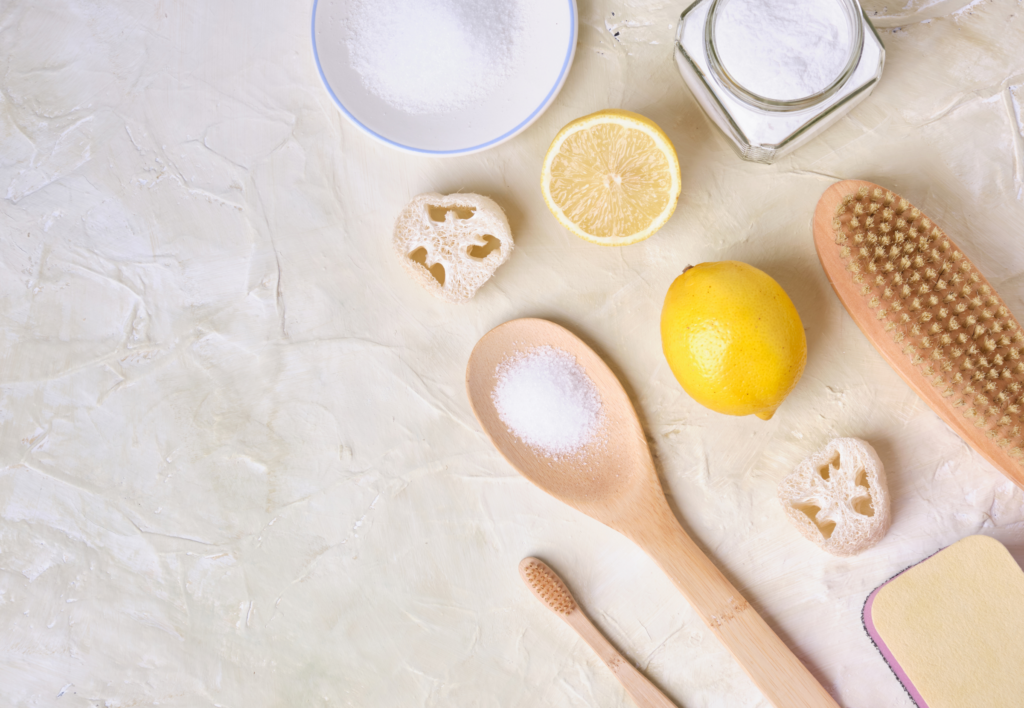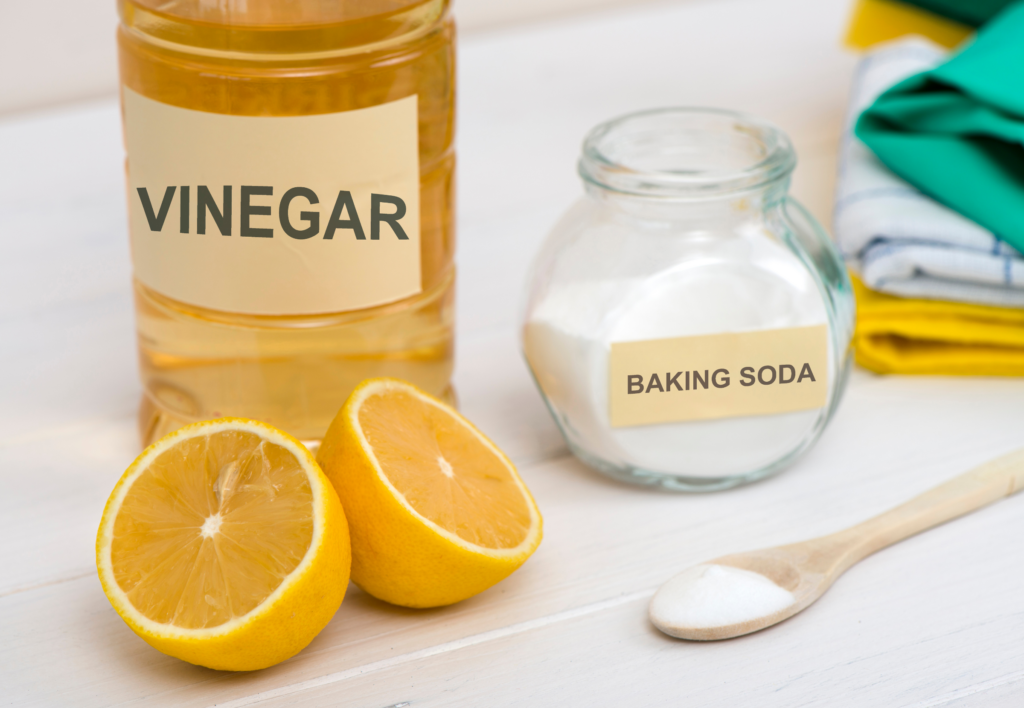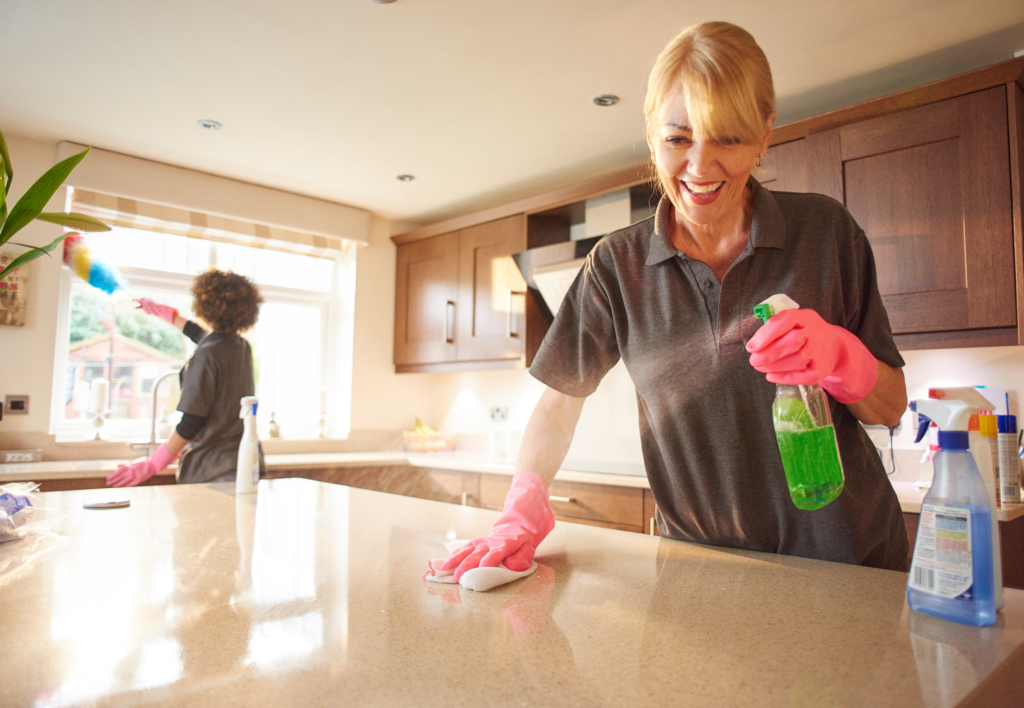Homemade Non-Toxic Cleaners: 5 DIY Cleaning Recipes Using Pantry Staples
Imagine transforming your everyday pantry staples into mighty cleaning allies. Interestingly, it’s not only possible, but also cost-effective, easy, and healthier for your home!
Today’s article will reveal five incredible ways you can create homemade non-toxic cleaners using nothing more than common ingredients residing in your kitchen right now. Say goodbye to hazardous chemicals and hello to a cleaner, greener home with these DIY cleaning recipes.
Our Best Homemade Non-Toxic Cleaner Recipes
Cleaning products are essential for maintaining hygiene and preventing infections. Over the years, various synthetic and toxic cleaners have been marketed as the ultimate solution.
However, these products come with potentially hazardous chemicals that may harm our health or cause damage to surfaces and appliances. Thankfully, we don’t have to rely on such products because we can make non-toxic cleaning solutions that work just as effectively using pantry staples.
Think of it like cooking; if you have the right ingredients, you can prepare a delicious meal without relying on pre-packaged meals that contain artificial preservatives and unhealthy additives.
With just a few simple ingredients, we can make all-purpose cleaners, glass cleaners, wood cleaners, dust removers, among others. Today, we’ll explore five of the best homemade non-toxic cleaner recipes.

All-Purpose Cleaner
Ingredients:
1 part white vinegar
1 part water
Lemon rind (optional)
Rosemary sprigs (optional)
Instructions:
Combine the vinegar and water in a spray bottle.
Add lemon rind and rosemary sprigs for scent, if desired.
Shake well.
Spray onto surfaces and wipe clean with a cloth.
Glass Cleaner
Ingredients:
2 cups water
1/2 cup white or cider vinegar
1/4 cup rubbing alcohol (70% concentration)
1 to 2 drops of orange essential oil (optional, for scent)
Instructions:
Mix all ingredients in a spray bottle.
Spray onto glass surfaces and wipe away with a microfiber cloth or newspaper for a streak-free shine.
Scrubbing Paste (Great for Bathrooms and Kitchens)
Ingredients:
1/2 cup baking soda
Liquid dish soap
Lemon juice (optional)
Instructions:
Put the baking soda in a bowl.
Slowly pour in liquid dish soap, stirring until you have a paste-like consistency.
Add a few drops of lemon juice for scent, if desired.
Apply with a sponge or cloth to the surface, scrub, and rinse off.
Wood Polish
Ingredients:
1 cup olive oil
1/4 cup white vinegar
Optional: 20-30 drops of lemon essential oil or lemon juice for scent
Instructions:
Combine all ingredients in a spray bottle or a bowl.
Shake or stir to mix well.
Apply a small amount to a cloth and rub onto wooden furniture in a circular motion.
Carpet Stain Remover
Ingredients:
1 part white vinegar
2 parts water
Baking soda
Instructions:
Sprinkle baking soda over the stain and let it sit for 10 minutes.
Vacuum up the baking soda.
Mix the water and vinegar in a spray bottle, spray on the stain, and blot with a clean cloth.

How to Make Cleaning Healthier with DIY Cleaners
It’s an open secret that most commercially available cleaning products contain toxic chemicals that can harm human health while also impacting the environment negatively. With increasing rates of respiratory issues such as asthma, allergies, and skin irritations among us today, it is hence imperative for us to choose holistic alternatives free from harmful chemicals.
To give you an idea of how easy it is to make your cleaners at home using commonly used kitchen staples with few additional ingredients:
| Purpose | Ingredient | Recipe |
|---|---|---|
| All-purpose cleaner | White vinegar, Baking soda, Lemon juice, Warm water | Mix white vinegar and warm water in equal quantities, add half spoon of baking soda and lemon juice to it. |
| Glass cleaner | Lemon juice, Vinegar, Warm water | Add equal amounts of white vinegar and warm water with two or three cups of lemon juice. |
| Carpet stain removal | Baking soda, Salt, Dish soap | Mix equal parts baking soda and salt in a bowl. Add just enough dish soap until you have a paste-like consistency. |
Just like eating healthy home-cooked meals, cleaning with homemade products will not only benefit your health but also the planet’s. Making your cleaners is incredibly easy – it’ll take you only a few minutes, and you may not want to turn back once you’ve tried them!
Now that we’ve explored how we can make our cleaning habits healthier with DIY alternatives, let’s look into tips on how to incorporate these methods into our day-to-day lifestyles.
Why Use Non-Toxic Cleaners from Your Pantry?
Have you ever read the ingredient list on the back of a cleaning product? Chances are, there are a lot of chemicals and toxins that you can’t even pronounce.
Using non-toxic cleaners made from items in your pantry is an excellent way to reduce your exposure to harmful chemicals while keeping your home clean and fresh. By using simple ingredients like vinegar, baking soda, and lemon juice, you can create homemade cleaning solutions that work just as well (if not better) than many store-bought products.
For example, vinegar is a great all-purpose cleaner that can be used to cut through grease and grime, disinfect surfaces, and eliminate odors.
Baking soda is also an effective cleaner thanks to its gentle abrasive properties – it can be used to scrub away stains on surfaces like stovetops or sinks. Lemon juice is a natural bleaching agent and can help brighten laundry or tackle tough stains.
Benefits of Using Pantry Items for Cleaning
Not only are non-toxic cleaners safer for your health and the environment, but they’re also often much cheaper than store-bought alternatives. Many of the ingredients needed for homemade cleaners are pantry staples that you likely already have on hand. This means you don’t need to spend money buying specialty cleaning products, reducing your environmental footprint and overall expenditure.
Another benefit of using pantry items for cleaning is their versatility. One ingredient can be used in multiple ways. For instance; white vinegar can be used as an all-purpose cleaner, fabric softener or disinfectant while baking soda can be used as a deodorizer, removes stains in laundry and a scouring agent for cleaning sinks among others.
Using pantry staples also helps limit the number of plastic bottles we use since most homemade options require us to mix small amounts of recipes into reusable containers whenever we need them.
Think of it this way – just as a chef relies on basic ingredients like flour, sugar, and eggs to create countless recipes, so too can we use simple pantry items to keep our homes clean and fresh.
Now that you understand the benefits of using non-toxic cleaners from your pantry, let’s dive into some specific ingredients you can use for effective homemade cleaning.

Common Kitchen Ingredients Used in Non-toxic Cleaners
Many commercial cleaning products contain harsh chemicals that pose environmental and health hazards. A growing number of households are, therefore, turning to non-toxic cleaners, which can be made easily at home with everyday ingredients found in the kitchen pantry.
These homemade mixtures comprising natural ingredients like vinegar, baking soda, essential oils, and lemon juice are not just better for personal health but also come without additional packaging waste and reduce exposure to indoor air pollutants.
The following is a list of commonly used non-toxic kitchen ingredients that can be repurposed for making household cleaning products:
1. Baking Soda: Sodium bicarbonate or baking soda is incredibly versatile and often the star of most household cleaner recipes due to its ability to deodorize, remove stains and cut through grease. It works great as a scouring agent for sinks, tubs and toilets when mixed with water.
2. White Vinegar: Acidic white vinegar is another staple ingredient used either alone or combined with baking soda. Its acidic nature makes it an excellent natural cleaner for mold and mildew caked around bathroom tiles or grout, while a mixture of vinegar and water can work well as a glass or window cleaner.
3. Castile Soap: Made from vegetable oils such as coconut oil or olive oil, this gentle soap serves as a base for many homemade cleaners such as all-purpose sprays and dishwashing liquid.
4. Lemon Juice: With its antibacterial properties, citric acid present in lemons dissolves mineral buildup in pipes or showerheads leaving them clean and fresh-smelling.
5. Essential oils: Used primarily for scenting cleaning blends as they’re derived directly from plant extracts so long-lasting potent smells can be achieved without compromising on the naturalness of the product.
Another classic recipe is mixing water, vinegar and a few drops of essential oil in a spray bottle. This DIY all-purpose spray can be used to clean counters, sinks, and even floors.
Let Us Know How We’re Doing!
Did this expertly prepared resource answer your question?
Do you have another question about home maintenance, home improvement projects, home appliance repair, or something else?
Get more information, send in questions and keep the discussion going by contacting the I’ll Just Fix It Myself company customer service team at at 1-800-928-1490 or Email us at [email protected]
